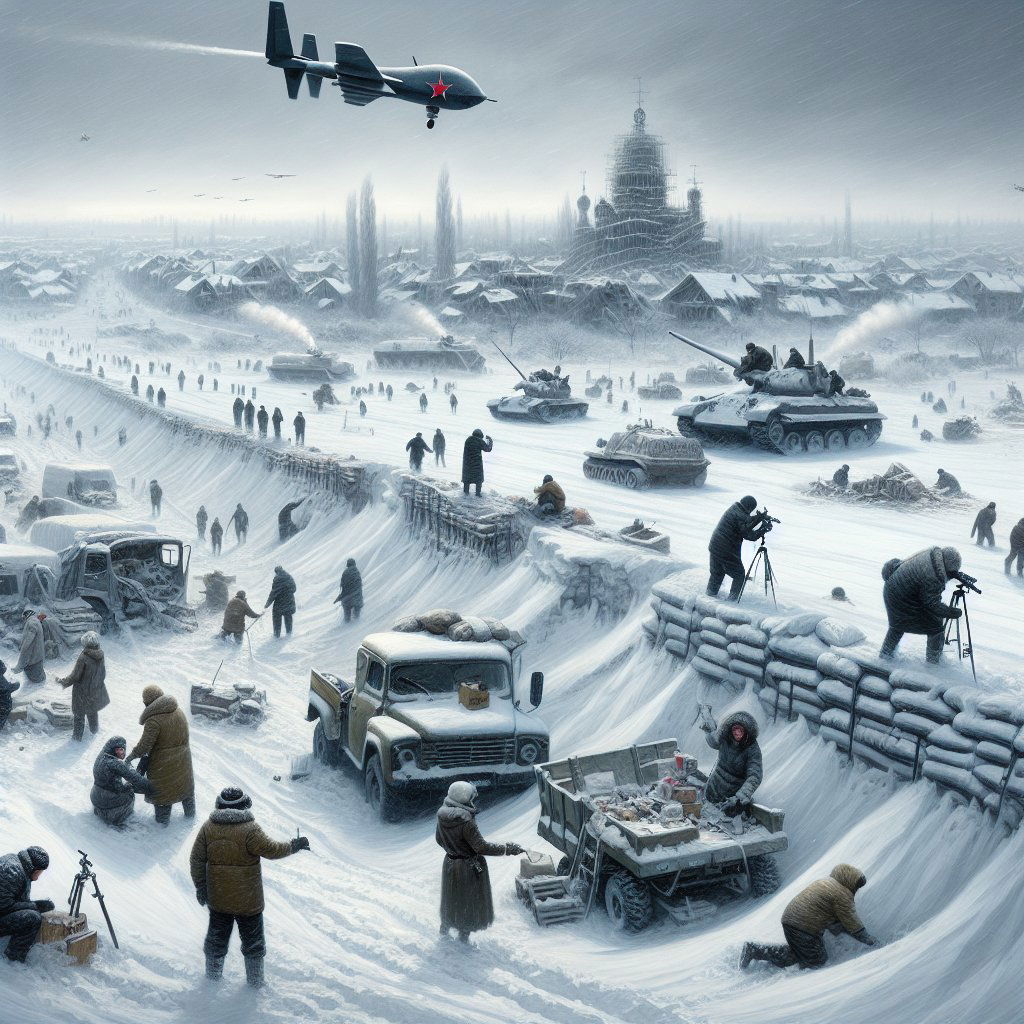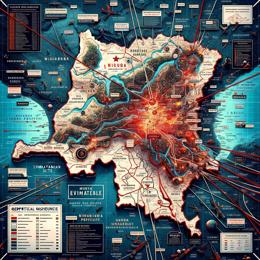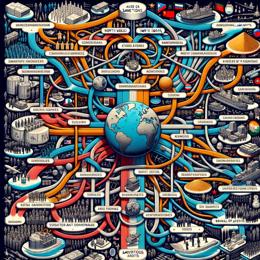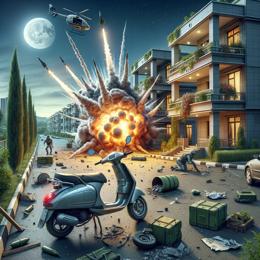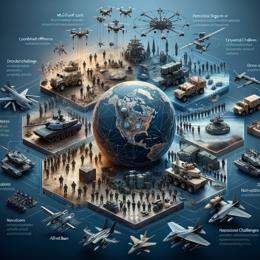Image: AI generated for illustration purposes
Ukraine Steels for Increased Tensions as Russia Augments Drone Warfare Capabilities
As winter descends on the war-torn landscapes of Ukraine, President Volodymyr Zelensky has called upon the nation to construct more robust defensive lines with greater urgency. The plea is set against the background of a perplexing state of affairs, both on the ground and in the hearts of the Ukrainian people, reflected in recent political developments and a telling opinion poll.
Amidst military stalemates and a palpable war fatigue, Ukraine is facing internal discord over its NATO aspirations. A recent survey by Rating pollster reveals a nation divided, with 40% supporting NATO accession even if it excludes territories beyond government control. Although overall support for the alliance remains high at 77%, it marks a drop since July and echoes the initial sentiment when Russia's assault began in March 2022.
In a parallel narrative, Russia intensifies its military capabilities, defying international sanctions with an 80% upswing in remote-controlled equipment production, crucial for drone warfare. This strategic maneuver has resulted in a 33% year-on-year increase in its designated 'most important product types,' a category including combat drones which is now experiencing a production boom. Russian industrial productivity appears resilient, registering a 5.3% increase in October compared to 2021.
This uptick in drone manufacturing aligns with wider militaristic efforts by the Kremlin, as it allegedly increases the supply of drones to its forces, and stakes claim in a larger geopolitical game. Amidst reports of opening new drone factories, a recently established manufacturer claimed a staggering production of 500 drones monthly. Rostec, Russia's state-owned defence conglomerate, also reports a significant increase in UAV production, sharpening the teeth of the Russian bear in this enduring conflict.
Meanwhile, Moscow eyes bolstering strategic alliances beyond its borders. Russia's courtship with African nations continues, as it seeks to offer its digital expertise, a venture shadowed by the influence of Putin’s younger daughter. African officials are set to visit Moscow, keen to soak in digital wisdom that would advance governance. These overtures are part of a broader Russian plan to assert its influence in Africa, competing with China, the EU, and the US for a foothold on the continent.
As conversations turn to membership talks with the European Union, Ukraine has not been passive in its reform ambitions. EU Commission Vice-President Vera Jourova acknowledges Ukraine's progress in combating corruption, a crucial step toward aligning with European standards and advancing its EU membership bid.
However, in a controversial move, Russia is supposedly mandating a 'loyalty agreement' for foreign entrants. The Tass news service suggests imminent restrictions designed to safeguard national interests, potentially stifling any disagreement with Kremlin policies, including opposition toward the war in Ukraine or the promotion of LGBTQI+ relationships.
Zelensky's exhortation for robust defenses underscores rising concerns about Russia's aggressive pursuits. Ukraine must navigate a complex diplomatic terrain while preparing for potential territorial challenges, as the armed conflict gains a frigid edge during these winter months.
